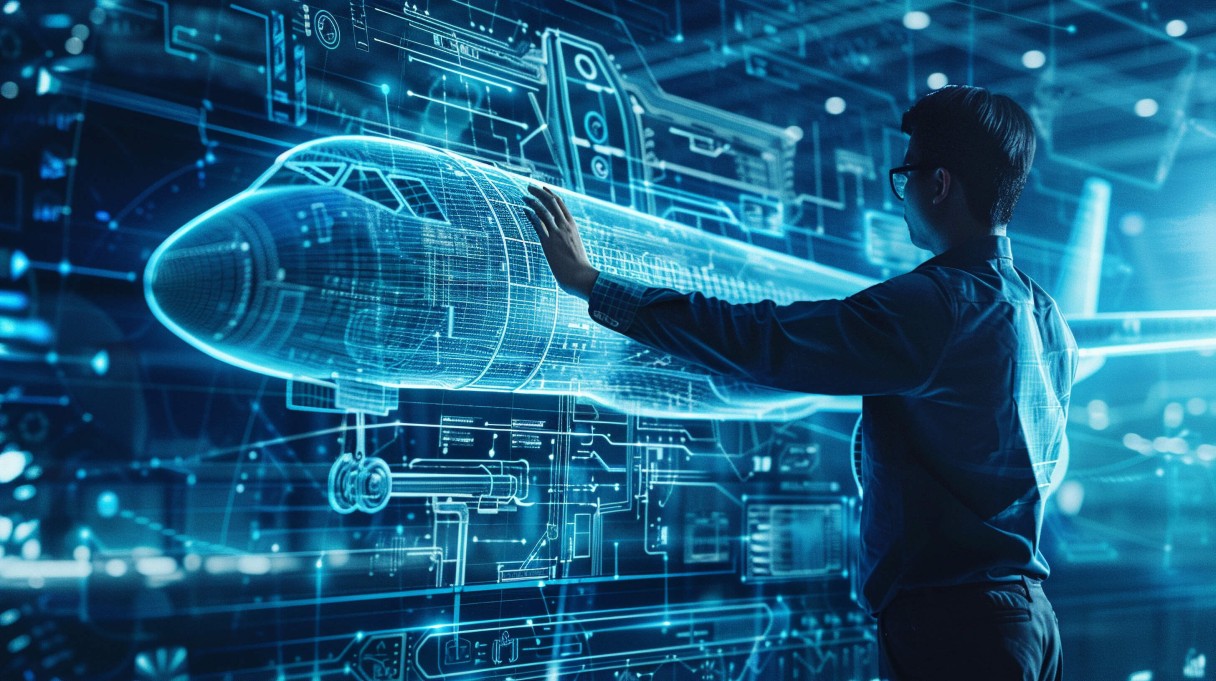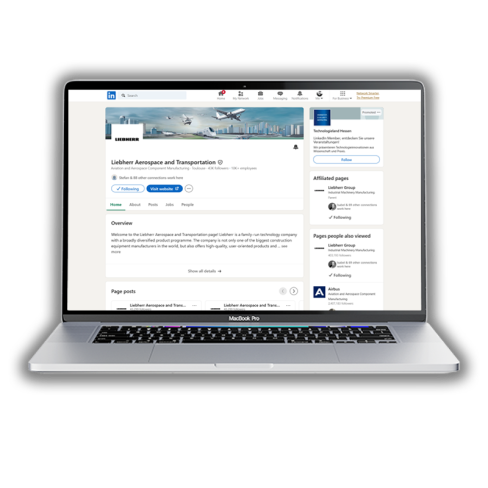New opportunities with AI
The countless possibilities of artificial intelligence (AI) have become indispensable. It offers numerous chances and can play a key role, especially in overcoming challenges in the aviation industry. Nicolas Canouet, Head of the DataLab Center of Excellence and AI Coordinator at Liebherr-Aerospace & Transportation SAS, gives insights into how the division is bundling the possibilities of AI and how customers can benefit from it.

Nicolas, how relevant is the topic of AI for the aviation industry in general?
The aerospace industry is currently facing numerous challenges, for example to increase the production rate, or the question of how we can make the industry more sustainable. We need to adapt to this business environment with agility in order to be reliable, resilient and perform well for the benefit of our customers. Against this background, AI is an essential technology that can help us to better overcome these challenges.
Is there a special AI concept or guideline that needs to be considered?
We of course adhere to the legal regulations, in particular the Artificial Intelligence Act, the first standardized regulation for the use of AI in the European Union, which entered into force on August 1, 2024.
It provides clear requirements and obligations regarding the specific use of AI and outlines principles to be followed: respect for fundamental rights, ensure safety, transparency and accountability.
Artificial intelligence enhances our cognitive capabilities, enabling us to work smarter, solve complex problems more effectively and make better decisions.
In which areas at Liebherr-Aerospace is AI increasingly being used? What role does it play and what can it do for the company?
We leverage AI across three key areas: operational efficiency, new services and product innovation. In the area of operational efficiency, we use AI for industrial planning, as well as to optimize logistics chains and supplement knowledge management. This streamlines processes and improves decision-making.
In the second area of new services, AI contributes to diagnostic support and predictive maintenance. This means that maintenance or upcoming repairs can be identified at an early stage and carried out more effectively. This improves our service quality and minimizes aircraft downtime.
In the area of product innovation, we are working on embedding AI into our components as well as systems to create new functions.
Initially, we developed our expertise primarily through activities that are very closely linked to the product. These include, for example, predictive maintenance, AI technologies that could be directly embedded in the product or through techniques that support product design.
We are now focusing on integrating AI directly into the core of our internal processes in order to optimize industrial performance. For example, we are using AI to optimize new purchasing strategies or to plan workflows in production.
What are the benefits of AI for our customers?
Our customers can, for example, directly benefit from our AI expertise with our predictive maintenance offering. Necessary maintenance work can be identified at an early stage, allowing our customers to plan better and avoid operational interruptions.
What challenges arise when dealing with AI and how do you deal with them?
From a technical perspective, I would say that the two major challenges are safety and frugality. These two characteristics are crucial for the safe and sustainable use of AI solutions within the company and for the integration of AI solutions into aircraft systems.
What is planned for the future in the area of AI?
The future of and with AI is difficult to predict, especially when it comes to long-term developments. However, one thing is clear: AI has great potential for change – both in terms of the company and the workplace. It is therefore important to define a framework for how we want to use AI in the company and how we support our employees in embracing this change.

